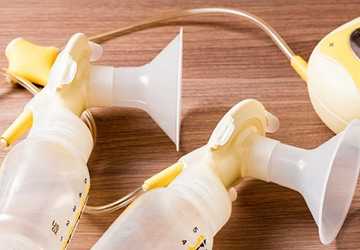Pregnancy is a time of significant change and development, both for the expectant mother and her growing baby. During this crucial period, awareness of environmental toxins is essential. These substances can adversely affect maternal health and fetal development. This article provides an overview of environmental toxins, how they impact pregnancy, common toxins to avoid, and practical tips for minimizing exposure.
What Are Environmental Toxins?
Environmental toxins are harmful substances found in our surroundings that can negatively affect health. These toxins can originate from various sources, including industrial processes, agricultural practices, household products, and even natural environments. Common types of environmental toxins include heavy metals, pesticides, air pollutants, and endocrine disruptors.
Heavy metals like lead, mercury, and cadmium can enter the body through contaminated food, water, or air. Pesticides are often used in agriculture to control pests and diseases but can linger on produce and in the environment. Air pollutants, including particulate matter and volatile organic compounds (VOCs), can come from vehicle emissions, industrial discharges, and household products. Endocrine disruptors are chemicals that interfere with hormonal functions and can be found in plastics, cosmetics, and some cleaning products.

How Environmental Toxins Affect Pregnancy
The impact of environmental toxins on pregnancy can be profound and varied. Research has shown that exposure to certain toxins during pregnancy can lead to complications and developmental issues for the fetus. Here are some ways these toxins can affect pregnancy:
Fetal Development
Exposure to environmental toxins during pregnancy can disrupt normal fetal development. For example, heavy metals like lead and mercury have been linked to developmental delays, cognitive deficits, and behavioral issues in children. Pesticides can also interfere with brain development, potentially leading to long-term learning disabilities.
Birth Defects
Certain toxins are associated with an increased risk of congenital disabilities. Studies have indicated that exposure to specific chemicals during critical periods of development can lead to congenital anomalies affecting the heart, spine, or limbs. Understanding these risks can help expectant mothers take precautions to reduce exposure.
Preterm Birth
Environmental toxins have been linked to the risk of preterm birth, which can have significant health implications for the baby. Preterm infants may face challenges such as respiratory issues, developmental delays, and increased risk of long-term health problems. Reducing exposure to harmful substances can help lower this risk.
Maternal Health
Environmental toxins can also affect maternal health, leading to complications such as gestational hypertension, preeclampsia, and gestational diabetes. Maintaining a healthy pregnancy involves not only the well-being of the fetus but also the health of the mother.

Common Toxins To Avoid During Pregnancy
Understanding which toxins to avoid can empower expectant mothers to make informed choices. Here are some common environmental toxins that should be minimized during pregnancy:
Heavy Metals
Lead, mercury, and cadmium are environmental toxins that can pose risks during pregnancy. Lead, found in old paint, plumbing, and contaminated soil, can impact fetal brain development and increase the chances of learning disabilities. Mercury, often present in fish like sharks and swordfish, can harm the baby's developing nervous system. Cadmium, found in tobacco smoke and some industrial products, also poses risks to fetal development, making it essential to minimize exposure to these harmful substances during pregnancy.
Pesticides
Pesticides used in agriculture can linger on fruits and vegetables. Exposure to these chemicals during pregnancy has been linked to various health issues, including developmental disorders. Choosing organic produce when possible and thoroughly washing fruits and vegetables can help mitigate this risk.
Air Pollutants
Air quality can significantly impact pregnancy. Pollutants like particulate matter, carbon monoxide, and nitrogen dioxide are associated with adverse pregnancy outcomes, including low birth weight and preterm delivery. Living in areas with high pollution levels may increase these risks.
Endocrine Disruptors
Everyday items can contain chemicals that interfere with hormonal systems. Plastics, for instance, often contain BPA (bisphenol A), which can disrupt hormonal balance, making it important to choose BPA-free products. Similarly, cosmetics and personal care products may include harmful chemicals, so opting for natural or organic alternatives can help reduce exposure and promote safer use during pregnancy.

Tips For Reducing Exposure To Toxins
Reducing exposure to environmental toxins during pregnancy involves making informed choices and taking practical steps. Here are some tips to help minimize exposure:
Eat A Balanced Diet
A healthy diet is crucial during pregnancy. Opt for organic produce when possible to reduce pesticide exposure, and choose fish that are low in mercury. Incorporate a variety of fruits, vegetables, whole grains, and lean proteins to support overall health.
Stay Informed About Your Environment
Be aware of your environment. If possible, choose to live in areas with good air quality. If you work in a hazardous environment, talk to your employer about safety measures and protective equipment.
Choose Safer Household Products
Switch to eco-friendly cleaning products and avoid those with strong chemical scents. Many conventional household cleaners contain harmful ingredients. Using natural alternatives, such as vinegar and baking soda, can effectively clean without exposing you to toxic substances.

Limit Plastic Use
Reduce your reliance on plastic containers, especially for food storage. Instead, opt for glass or stainless steel options. Be cautious with plastic bottles, especially those labeled with recycling codes 3, 6, or 7, as they may contain harmful chemicals.
Practice Good Hygiene
Maintaining good hygiene can help reduce exposure to environmental toxins. Wash your hands frequently, especially before eating or preparing food. Rinse fruits and vegetables thoroughly to remove any pesticide residues.
Stay Active
Engaging in regular physical activity can improve overall health and may help mitigate some risks associated with environmental toxins. Choose activities that you enjoy, and that are safe for pregnancy, such as walking, swimming, or prenatal yoga.
Educate Yourself
Stay informed about environmental toxins and their potential effects on pregnancy. Understanding the risks associated with certain substances can empower you to make better choices for yourself and your baby.
Consult Your Healthcare Provider
Maintain open communication with your healthcare provider about your concerns regarding environmental toxins. They can provide personalized advice and resources to help you navigate potential risks during pregnancy.

Conclusion
Expectant mothers must be aware of environmental toxins and their potential effects during pregnancy. Understanding what these toxins are, how they can impact maternal and fetal health, and which toxins to avoid can empower women to take proactive steps to protect themselves and their babies. By making informed choices and minimizing exposure, you can foster a healthier environment for your pregnancy journey. Remember, small changes can lead to significant benefits for both you and your child.








